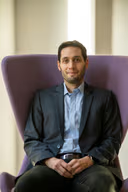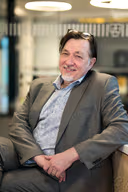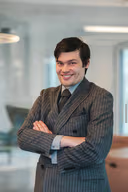Research Centers of the German UDS
The scientific exchange and collaboration between the professors and scientists at the German University of Digital Science is organized in Research Centers, which are agile and temporary organizational units that provide an inspiring framework for the dynamic research activities of the researchers. Here, professors, research associates, postdocs and PhD students work together on their research projects and dissertations. Each Research Center has its own PhD program, known as a Research School. The joint supervision of doctoral candidates by professors ensures an open and broad perspective from the outset when working on the research topic agreed with the doctoral supervisor.

















